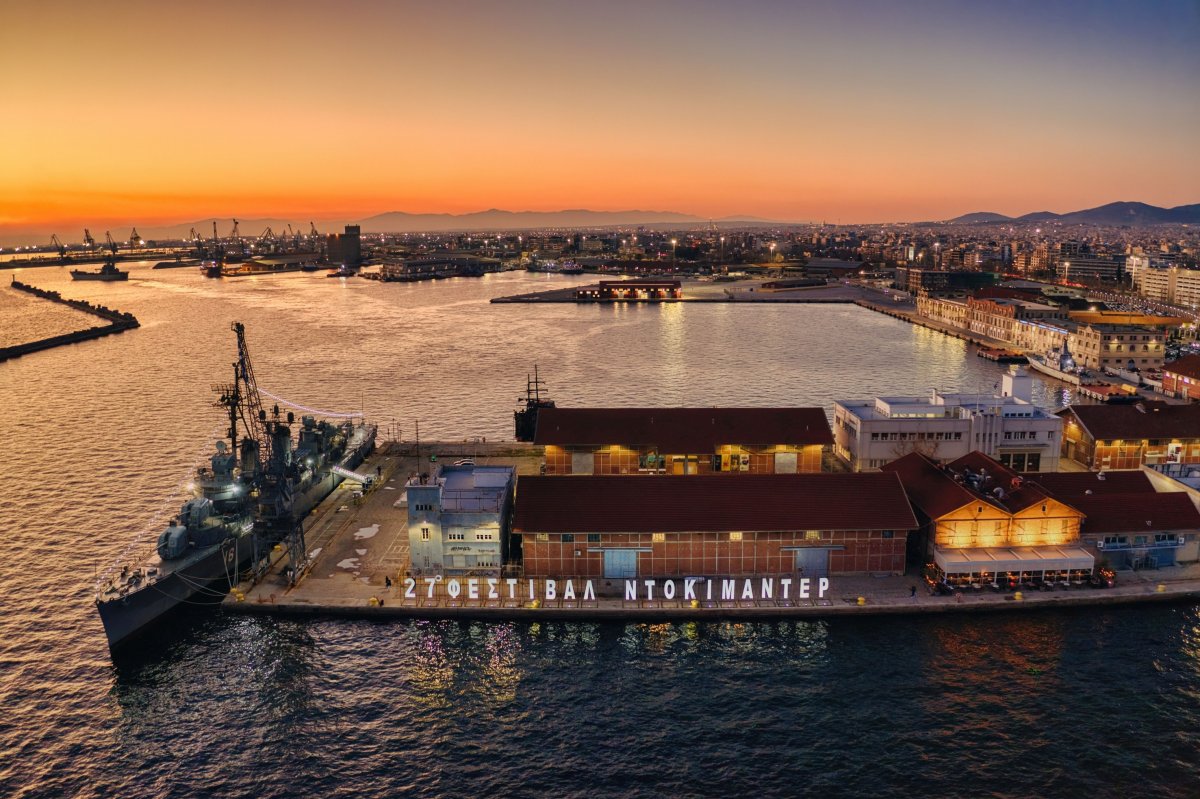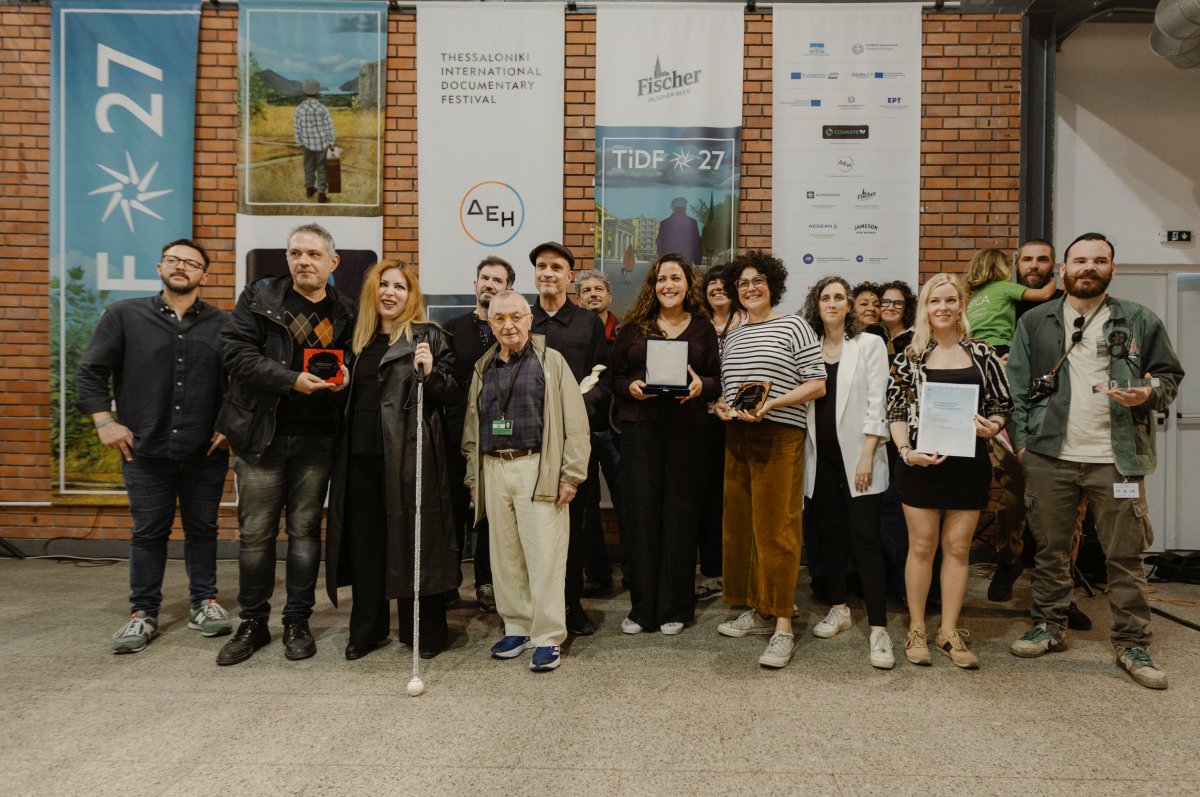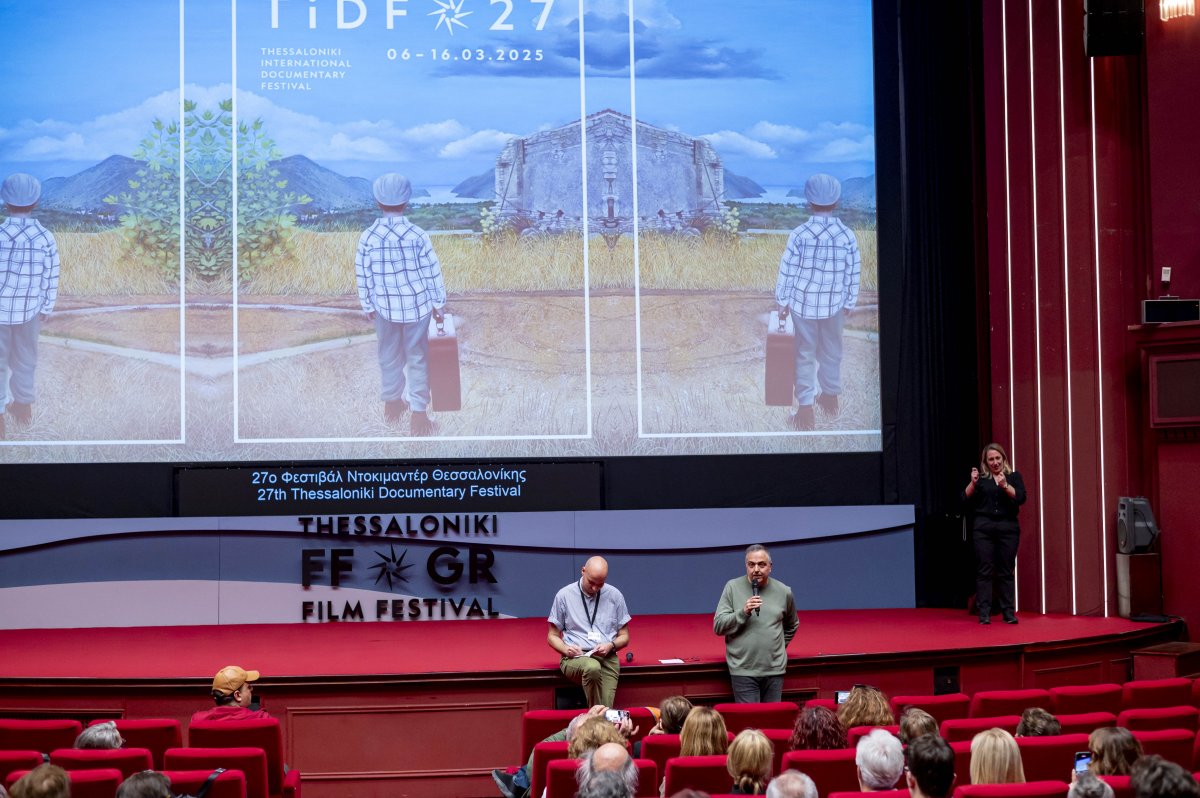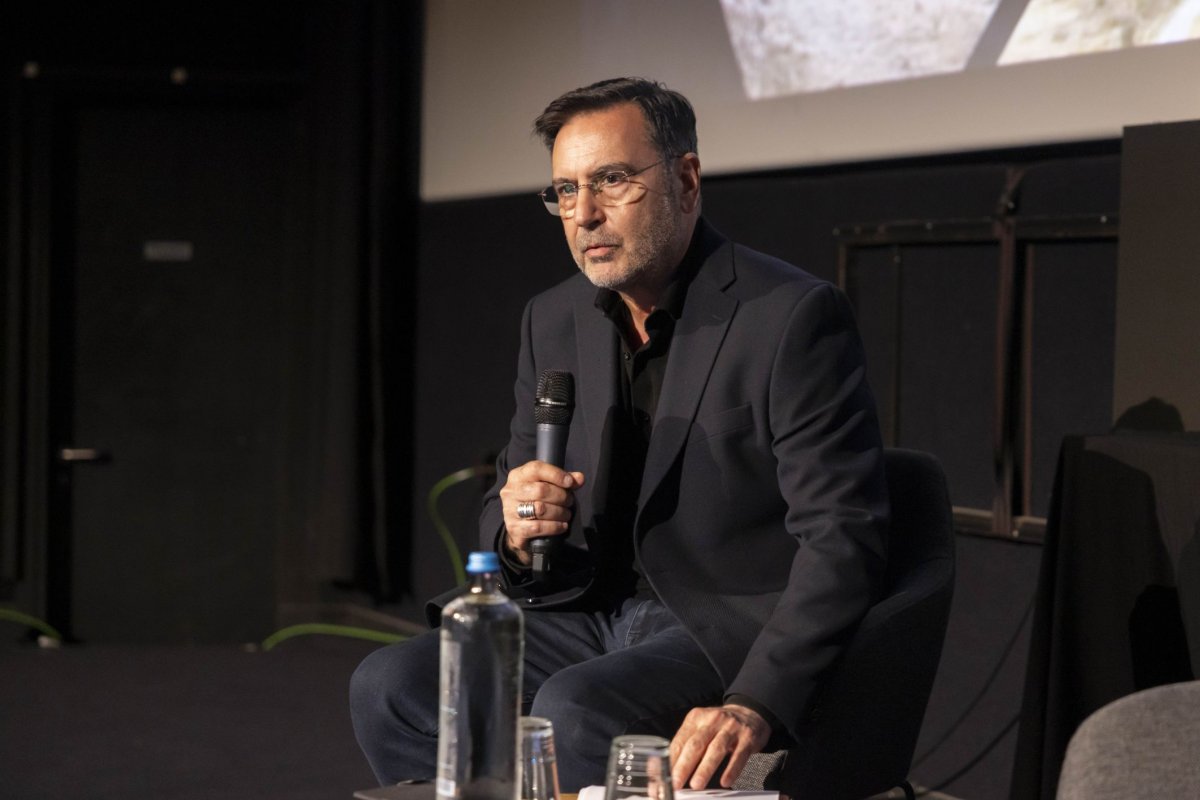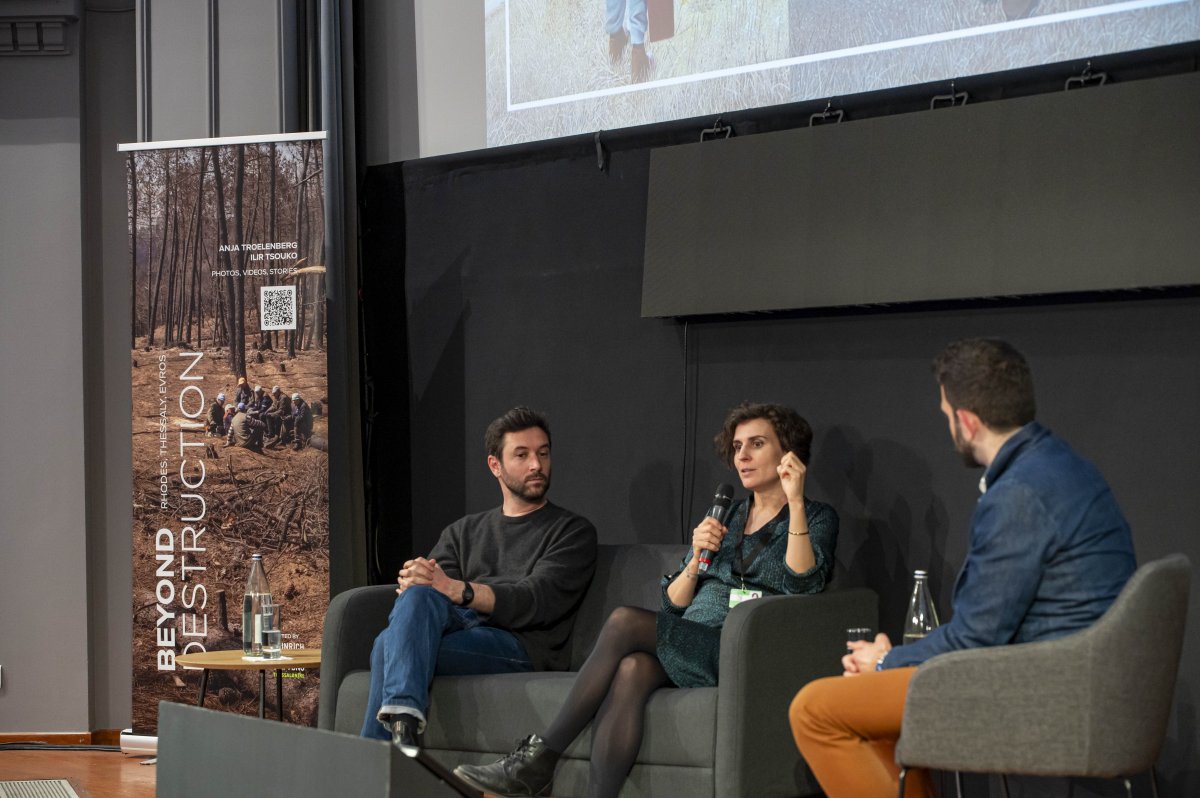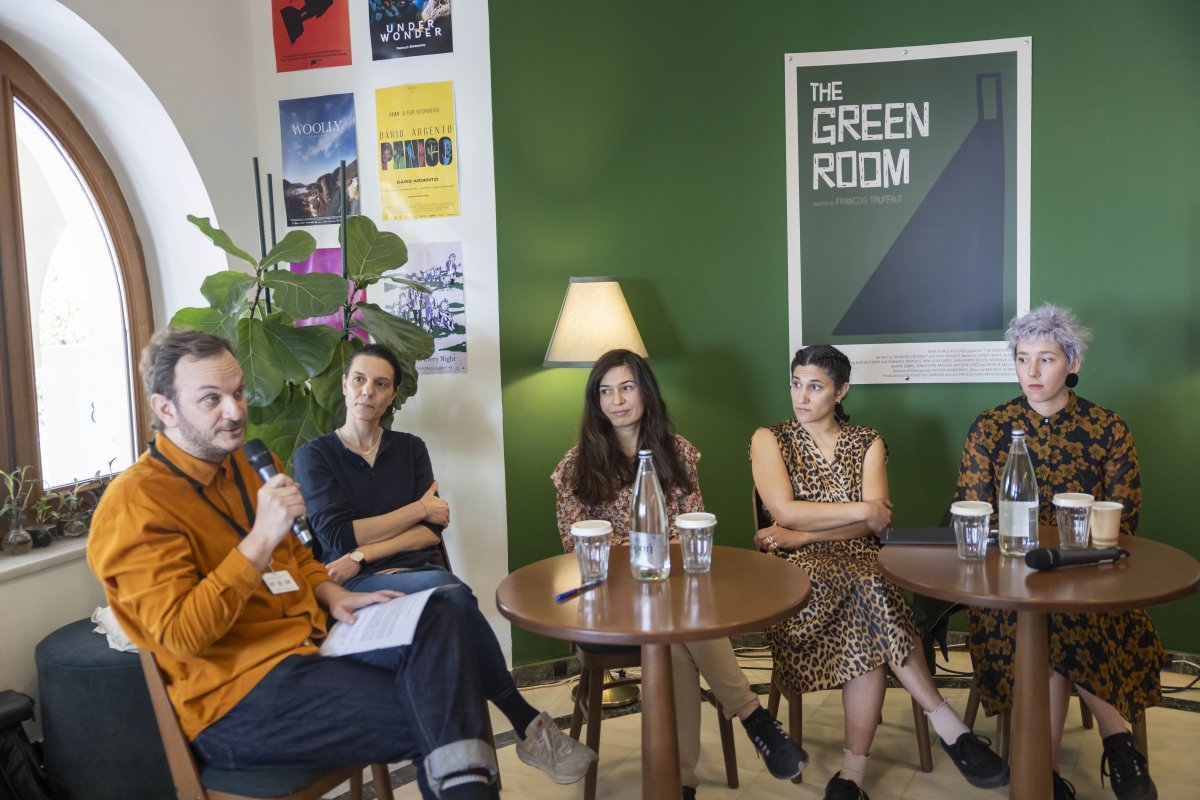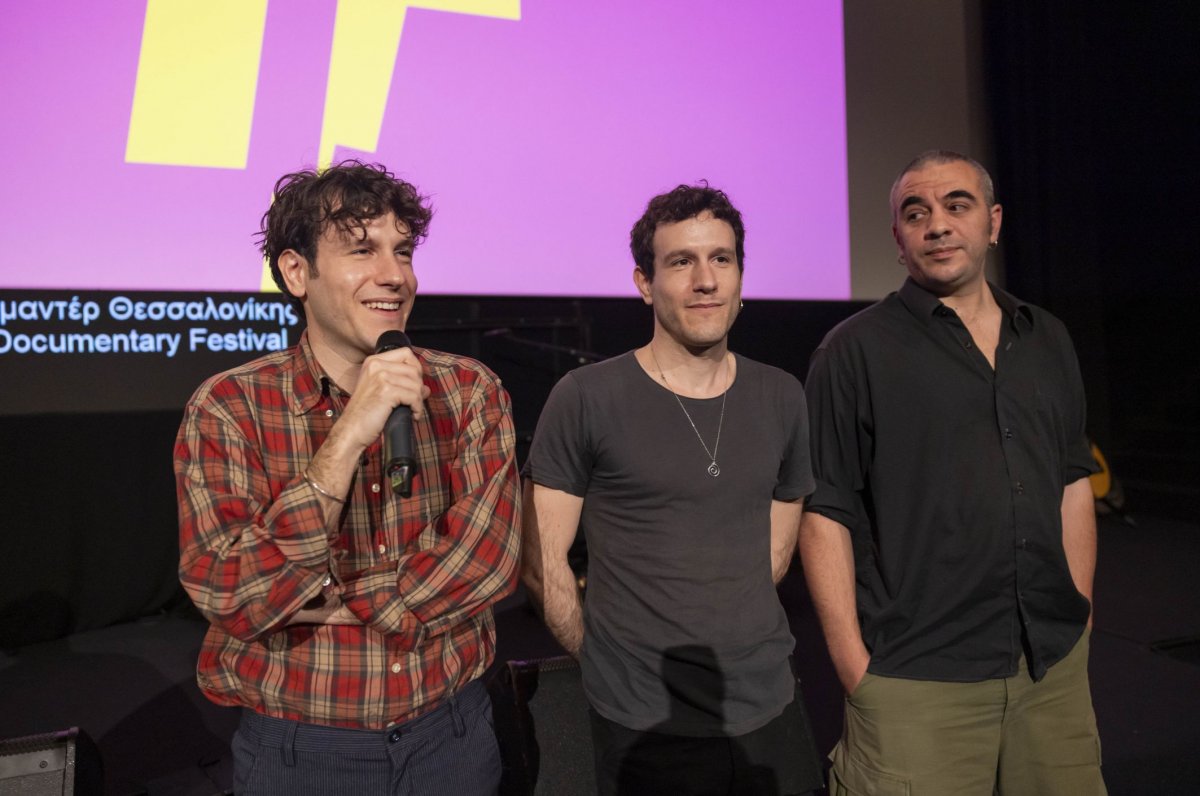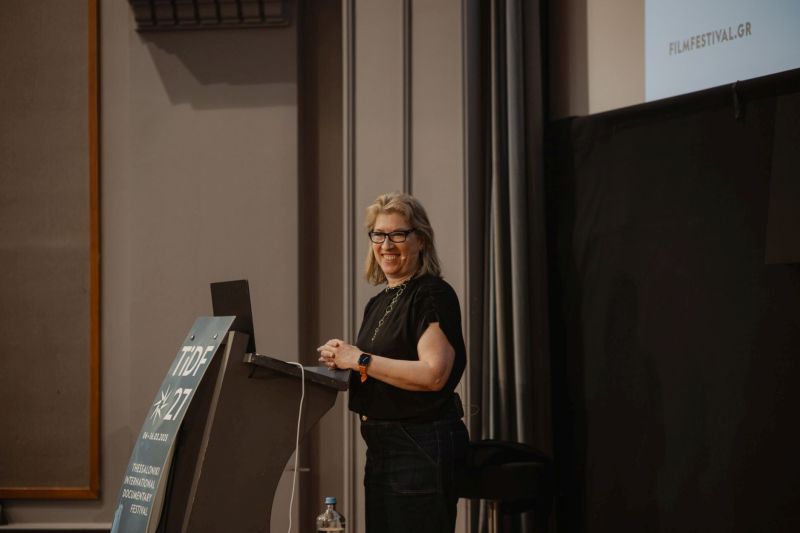Seven Songs of the Tundra takes place amidst the infinite white tundra, where a small religious cult sacrifices a reindeer. A ceremonial song accompanies the sacrifice, triggering a narrative divided into seven chapters, which re-enacts a pivotal point in the Nenets natives’ history. Deprived of their independence and prosperity, the nomadic reindeer breeders were ostracized from their homeland and asked to abandon not only their language and traditions but also their children that were forced to enroll in boarding schools. Bordering on the threshold between documentary and fiction, the first movie ever to be shot in the Nenets language is a touching drama that explores the deep wounds inflicted by the loss of identity and the struggle for survival.
Seven Songs from the Tundra
Seitsemän laulua tundralta

|
No physical screenings scheduled. |
- Direction: Anastasia Lapsui, Markku Lehmuskallio
- Script: Anastasia Lapsui
- Cinematography: Johannes Lehmuskallio
- Editing: Markku Lehmuskallio, Anastasia Lapsui
- Sound: Antero Honkanen, Pekka Martevo, Arto Jokisuu, Markku Lehmuskallio
- Actors: Vitalina Hudi, Hatjako Yzangi, Gregory Anaguritsi, Nadezhda Volodeeva, Nadeshda Horotetto
- Production: Jörn Donner Productions
- Producers: Tuula Söderberg
- Format: DCP
- Color: B/W
- Production Country: Finland
- Production Year: 2000
- Duration: 90΄
- Contact: The Finnish Film Foundation
- Awards/Distinctions: Amanda Prize – Norwegian IFF 2000, Grand Prix – Créteil International Women's FF 2000, FIPRESCI Prize – Palm Springs IFF 2001, Press Award – Paris IFF 2001, Audience Award – Entrevues IFF 2001
Anastasia Lapsui
Anastasia Lapsui (1944) is a Soviet-born Nenets film director, screenwriter, and radio journalist who has lived in Finland since 1993. Lapsui, together with Markku Lehmuskallio, directed Seven Songs from the Tundra, the first narrative film in the Nenets language. Lapsui has won numerous honors, including the Jussi Award for Best Film and the Grand Prize at the Créteil International Women's Film Festival. She was born to a nomadic family and graduated from Ural State University in Sverdlovsk Oblast. Early in her career, she was a radio reporter in the city of Salekhard and also wrote screenplays. Together with her spouse, Markku Lehmuskallio, they have directed more than ten films about the Nenets, the Sami, and other indigenous peoples from around the world.
Filmography
1993 In Reindeer Shape Across the Sky (doc, co-direction)
1995 The Farewell Chronicle (doc, co-direction)
1998 The Sacrifice – A Film about a Forest (doc, co-direction)
2000 Seven Songs from the Tundra (co-direction)
2001 Shepherd (doc, co-direction)
2002 Mothers of Life (doc, co-direction)
2007 The Sami (doc, co-direction)
2010 Pudana – Last of the Line (co-direction)
2015 Tsamo (co-direction)
Markku Lehmuskallio
Markku Lehmuskallio (born 31 December 1938) is a Finnish film director, cinematographer and screenwriter. He has directed 26 films since 1973. Together with his spouse, Anastasia Lapsui, they have directed more than ten films about the Nenets, the Sami, and other indigenous peoples from around the world. His 1980 film The Raven’s Dance was entered into the 30th Berlin International Film Festival, where it won an Honorable Mention.
Filmography
1973 Sounds of the Northern Forest (short)
1974 Tapiola (short)
1982 Skierri: Land of the Dwarf Birch
1988 Inuksuk 1993 In Reindeer Shape Across the Sky (doc, co-direction)
1995 The Farewell Chronicle (doc, co-direction)
1998 The Sacrifice – A Film about a Forest (doc, co-direction)
2000 Seven Songs from the Tundra (co-direction)
2001 Shepherd (doc, co-direction)
2002 Mothers of Life (doc, co-direction)
2007 The Sami (doc, co-direction)
2010 Pudana – Last of the Line (co-direction)
2015 Tsamo (co-direction)




